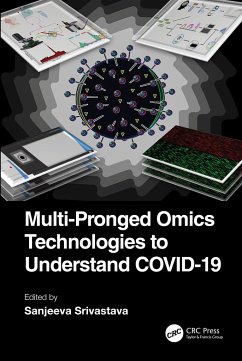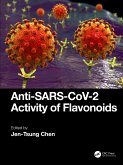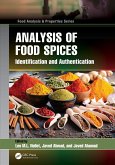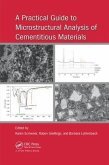"COVID-19 and Omics Technologies" is a comprehensive, integrative assessment of recent information and knowledge collected on SARS-CoV-2 and COVID-19 during the pandemic based on omics technologies. It demonstrates how omics technologies could better investigate the infectious disease and propose solutions to the current concerns.
The value of multi-omics technologies in understanding disease etiology and host response, discovering infection biomarkers and illness prediction, identifying vaccine candidates, discovering therapeutic targets, and tracing pathogen evolution is discussed in this book. These factors combine to make it a valuable resource to enhance understanding of both "Omics technology" and "COVID-19" as a disease. The book covers the most recent understanding of COVID-19 and the applications of cutting-edge studies, making it accessible to a large multidisciplinary readership.
The book explains how high-throughput technologies and systems biology might assist to solve the pandemic's challenges and deconstruct and appreciate the substantial contributions that omics technologies have made in predicting the path of this unforeseeable pandemic.
Features:
In-depth summary of clinical presentation, epidemiological impact, and long-term sequelae of COVID-19 pandemic.
A systematic overview of omics-based approaches to the study of COVID-19 biology.
Recent research results and some pointers to future advancements in methodologies used.
Detailed examples from recent studies on COVID-19 encompassing different omics methodologies.
A detailed description of methodologies and notes on the applications of state-of-the-art technologies.
This book is intended for scientists who need to understand the biology of COVID-19 from the perspective of omics investigations, as well as researchers who want to employ omics-based technologies in disease biology.
The value of multi-omics technologies in understanding disease etiology and host response, discovering infection biomarkers and illness prediction, identifying vaccine candidates, discovering therapeutic targets, and tracing pathogen evolution is discussed in this book. These factors combine to make it a valuable resource to enhance understanding of both "Omics technology" and "COVID-19" as a disease. The book covers the most recent understanding of COVID-19 and the applications of cutting-edge studies, making it accessible to a large multidisciplinary readership.
The book explains how high-throughput technologies and systems biology might assist to solve the pandemic's challenges and deconstruct and appreciate the substantial contributions that omics technologies have made in predicting the path of this unforeseeable pandemic.
Features:
In-depth summary of clinical presentation, epidemiological impact, and long-term sequelae of COVID-19 pandemic.
A systematic overview of omics-based approaches to the study of COVID-19 biology.
Recent research results and some pointers to future advancements in methodologies used.
Detailed examples from recent studies on COVID-19 encompassing different omics methodologies.
A detailed description of methodologies and notes on the applications of state-of-the-art technologies.
This book is intended for scientists who need to understand the biology of COVID-19 from the perspective of omics investigations, as well as researchers who want to employ omics-based technologies in disease biology.








